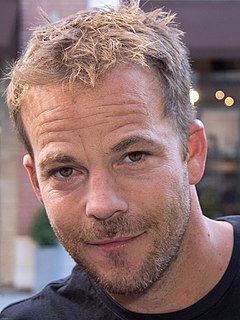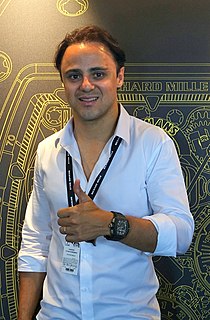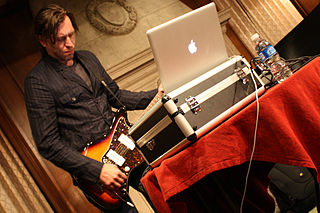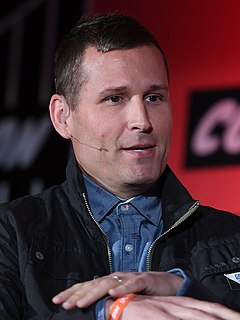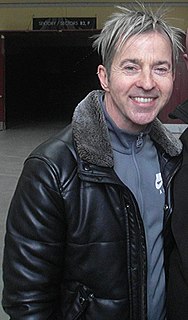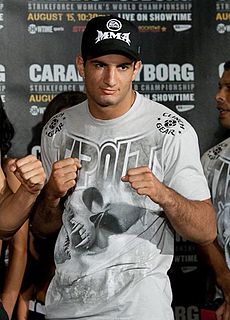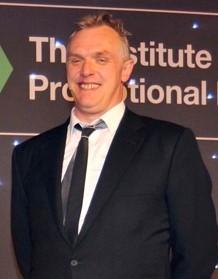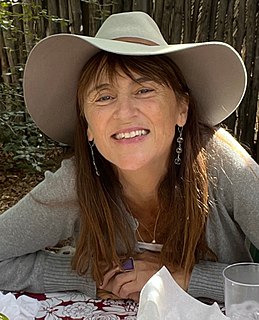A Quote by Bruce Springsteen
When I first started in rock, I had a big guy's audience for my early records. I had a very straight image, particularly through the mid '80s.
Related Quotes
I started playing guitar at the age of 8 or 9 years. Very early, and I was like already into pop music and was just trying to copy what I heard on the radio. And at a very early age I started experimenting with old tape recorders from my parents. I was 11 or 12 at that time and then when I was like 14 or 15 I had a punk band. I made all the classic rock musician's evolutions and then in the early nineties I bought my first sampler and that is how I got into electronic music, because I was able to produce it on my own. That was quite a relief.
Jazz stopped being creative in the early '80s. After your acoustic era, where you had the likes of the Miles Davis Quintet, when it gets to the '70s it started being jazz fusion where you had more electronic stuff happening, then in the '80s they started trying to bring back the acoustic stuff, like Branford Marsalis and the Wynton Marsalis & Eric Clapton sextet. It started dying down from there. Miles was still around in the '80s and he was still being creative; he was playing Michael Jackson songs and changing sounds, but a lot of people were still trying to regurgitate the old stuff.
The early 2000s for me were a very emotional time, politically. I'd been through Reagan and been through first Bush and Clinton, and it's not like I had an easy time through those years. But I just thought it was particularly rough. I have to say the World Trade Center attack was very weird for me. The events that followed were worse. It was a really long swath of time.
I noticed that difference early on, like if you were successful in rock 'n' roll, that was a really bad thing, you almost had to hide it. You had these guys selling 200 million records with dirty T-shirts on. I was like, 'Come on, man. Come on. We know you're successful.' Hip-hop is more about attaining wealth. People respect success. They respect big. They don't even have to like your music. If you're big enough, people are drawn to you.
I got my first real job, one that didn't involve wearing a hairnet or bending over the hood of a wet car with a towel in my hand, in the early '90s working for CBS Records. While there, I started my first of several rock bands and eventually wrote my first book, the semi-autobiographical novel, 'Don't Sleep With Your Drummer.'

